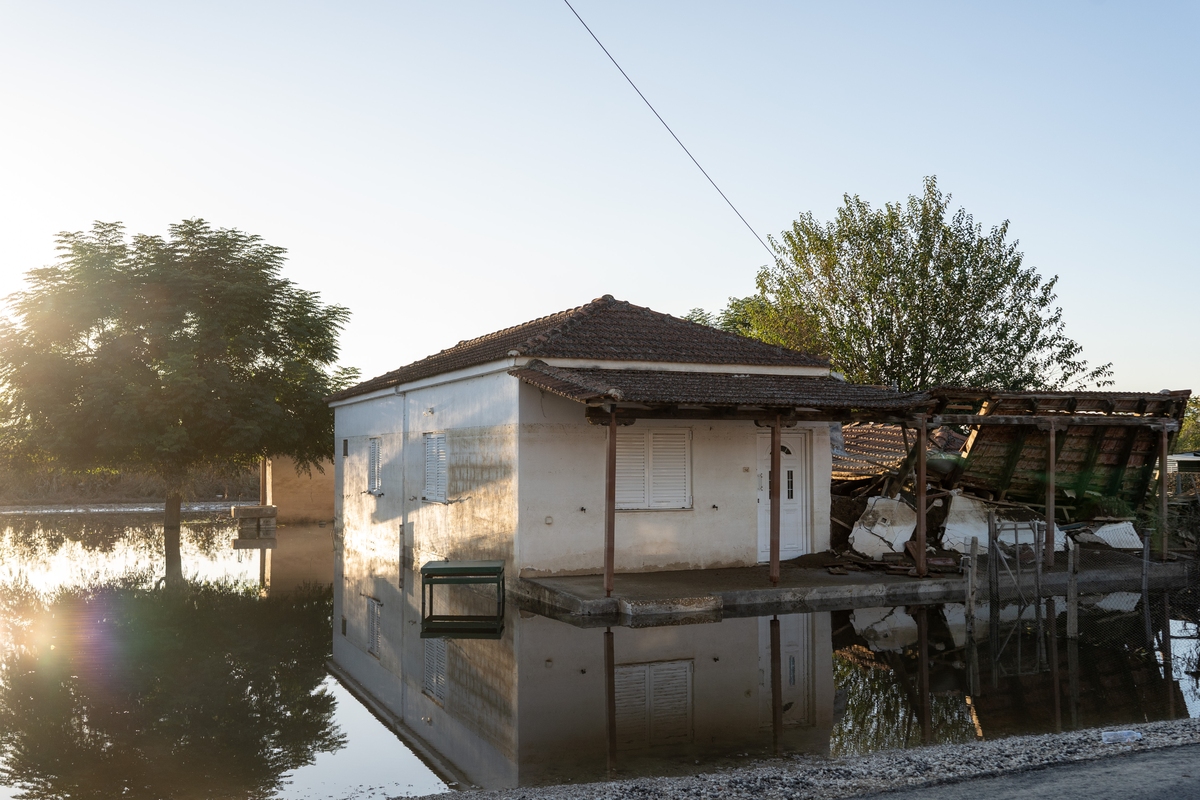
Greenpeace criticised the government’s lack of preparedness for future impacts of the climate crisis, citing recent incidents like the thousands of dead fish washed up in Volos, which they say reveal the severity of Thessaly’s environmental problems. The organisation called for urgent, modern solutions that work with natural processes to restore and manage damaged ecosystems, instead of outdated practices that have worsened the region’s plight.
A failing strategy for reconstruction
Greenpeace also took aim at the “Strategic Plan for the Reconstruction of Thessaly,” unveiled by Prime Minister Kyriakos Mitsotakis on September 2, which focuses on large-scale construction projects, dams, and hydrology schemes. The group described these projects as “obsolete, dangerous, and demagogically misleading,” citing the controversial diversion of the Achelous River, which Greenpeace argues would have worsened the devastation had it been completed.
The organisation further criticised the plan for the privatisation of Thessaly’s water resources, calling it a failed strategy that ignores internationally recognised scientific models and sustainable development practices. “Yesterday’s ideas are dragging the country backward,” Greenpeace said, referencing a Dutch company’s “masterplan” for the region, which was deemed scientifically insufficient and incompatible with EU and national legislation.
A call for change
“Twelve months after the disaster, we’re still hearing the same failed recipes that lead only to more climate catastrophe,” said Elena Danali, Greenpeace’s sustainable agriculture campaign lead in Greece. “We demand real policy design that regenerates agriculture and shields Thessaly from the impacts of the climate crisis. The choice is clear: change or sink.”
Greenpeace’s demands include:
- A comprehensive agricultural policy to regenerate and protect Thessaly’s production, using a sustainable model that accounts for the climate crisis.
- Immediate political measures to support farmers and processors to maintain the region’s productive capacity and prevent abandonment of farmland. Greenpeace pointed to a lack of transparency and noted that many actions taken so far seem more geared toward benefiting private companies rather than supporting local agriculture.
The organisation also called for detailed records of the damage to soil, plant, and animal production in Thessaly, and urged the government to release the results of chemical and microbiological analyses of the region’s soil and water – including tests conducted after the recent environmental disaster in Pagasitikos Bay.
Practical solutions for recovery
Greenpeace outlined four emergency measures that should have been implemented immediately after the disaster:
- On-site inspections, recording, and publication of findings.
- Soil and water analyses for each producer.
- Support for planting legumes and adding organic matter to restore soil fertility.
- A ban on mass pesticide use to protect the water table and beneficial organisms.
Additionally, the organisation set out ten priority areas for rebuilding agriculture in Thessaly, focused on sustainability and resilience to future climate impacts. These include promoting agro-ecological practices, reducing chemical use, improving water management, and supporting food production for local communities.
“Thessaly needs a radical shift towards agroecology and transparent planning that involves credible scientific bodies,” Greenpeace concluded. “Only through a sustainable approach can the region recover and be safeguarded from future disasters.”
______________________________________________
Are you seeking news from Greece presented from a progressive, non-mainstream perspective? Subscribe monthly or annually to support TPP International in delivering independent reporting in English. Don’t let Greek progressive voices fade.
Make sure to reference “TPP International” and your order number as the reason for payment.